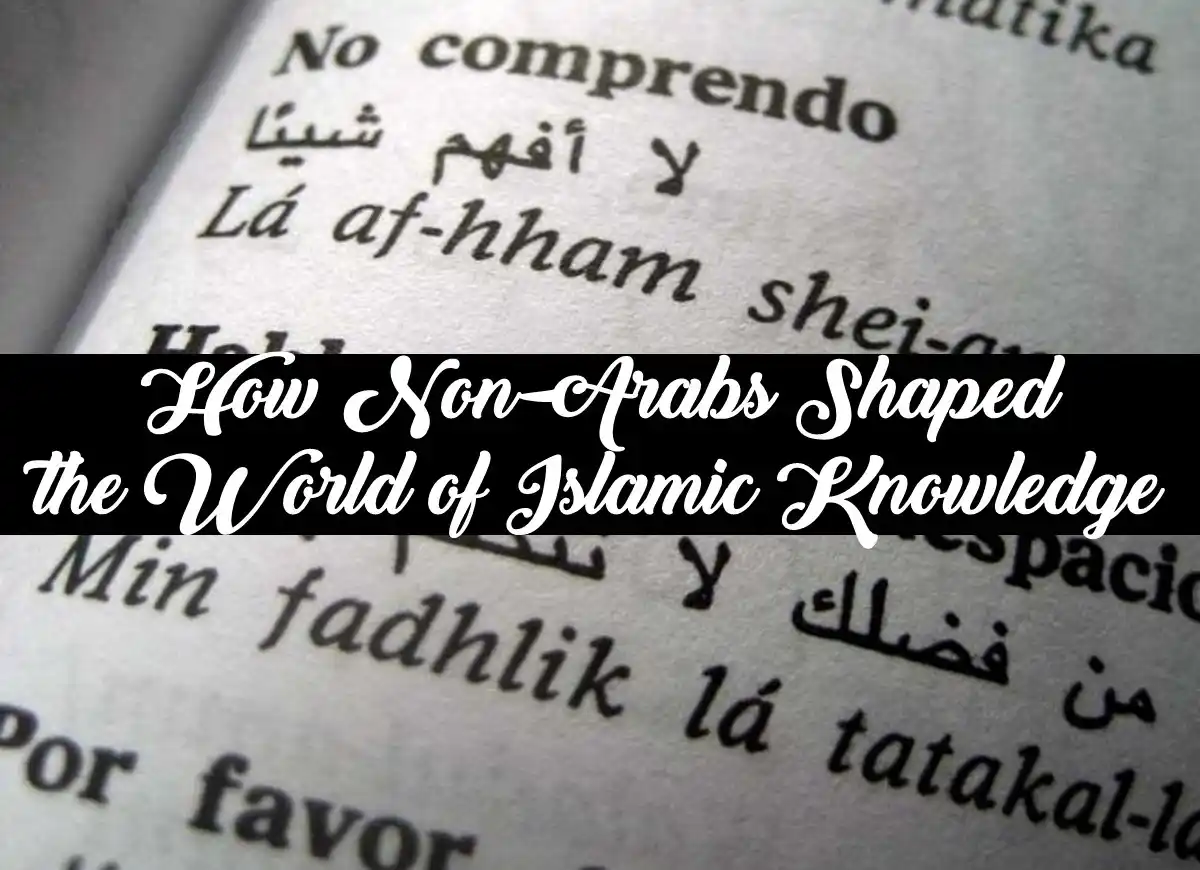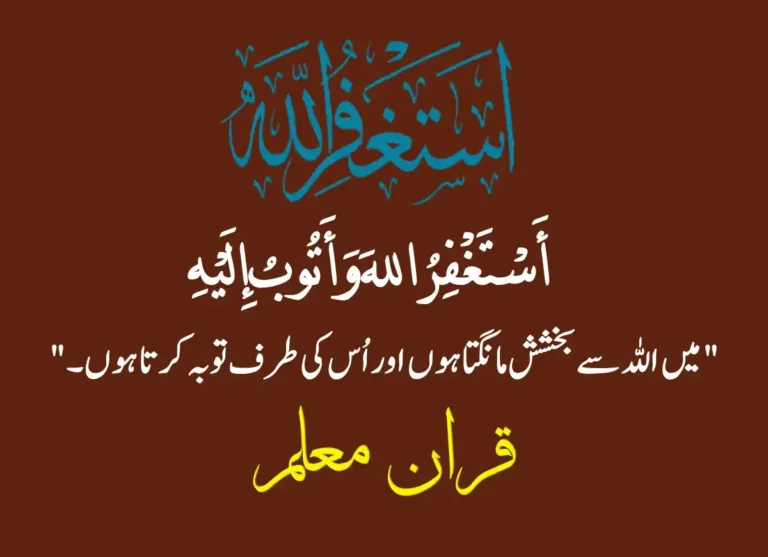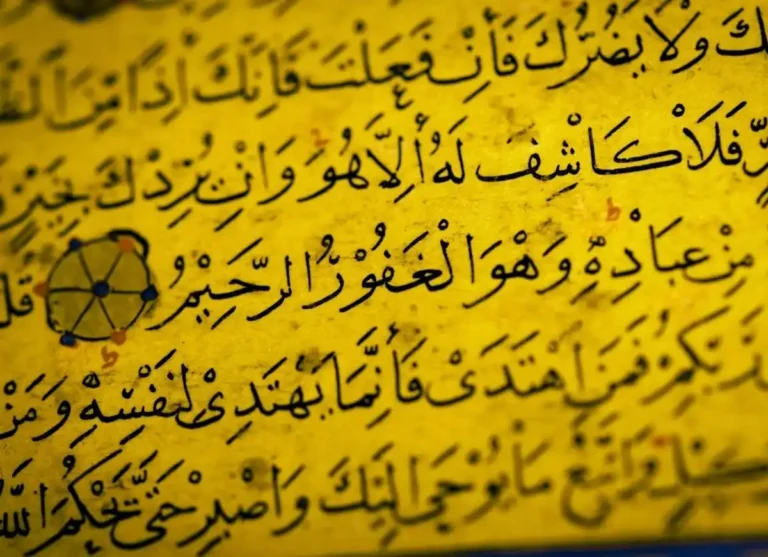If you think that non-Arabs throughout the history of Islam had no contribution to Islamic sciences and Islamic studies, this article will change your position. The fact is that non-Arabs, after converting to Islam, had the same love for the language of the Quran and understanding Islam. Studying the Quran and Arabic has always been the case in any community that converts to Islam. And that’s how it was in areas like Persia, Central Asia, Egypt, and North Africa.
After the opening of areas like the Levant, Egypt, and Iraq, the Arabic language had many students at that time due to the spread of Islam and the seeking of knowledge by Muslims in these areas.
SubhanAllah, the message of Islam was sent to all humanity, and all humanity contributed to it. “We have not sent you (O Muhammad) except as a mercy to all the worlds.” (Surah Al-Anbiya, 21:107). When non-Arab Muslims embraced Islam, they didn’t adopt its beliefs only, they contributed to its intellectual growth and books publication.
Seeking to learn the Arabic language
After the time of our Prophet PBUH, the message of Islam started to spread rapidly in all areas around the world, from Persia to Central Asia, Egypt, and even North Africa, reaching Spain and India. All of the Muslim Ummah were eager to learn the Arabic language and to understand how to speak it due to the fact that it was fascinating and a very beautiful language to them, and even the language of the Quran that they could use as the key to understanding the Quran and Hadith.
If you go back in time, you may see a Persian or Berber student sitting before an Arabic teacher struggling to pronounce the Arabic words perfectly, not just for a worldly benefit but completely out of pure love for Allah’s words and for the language itself.
As the message of Islam started to spread rapidly, the need arose to form online Quran Academy to teach the Quran and Islamic theology. At this point, a need emerged to preserve the Quran and the Arabic language for learners who were non-native Arabic speakers, as they might affect it and cause some changes to it. There was a need to develop sciences that could help those learners learn the Arabic language and the Quran without affecting the language of the Quran or its Qira’at (methods of recitation). And there Muslims began to develop methods of grammar, linguistics, jurisprudence, and theology to ensure that the divine message of Allah remained pure and unchanged. And here it is the non-Arabs who made great efforts contributing to this.
Non-Arabs contributing to Islamic sciences
Some people may think that all Muslim scholars throughout history have been Arabs. That’s not true. There have been so many scholars among those we know now who contributed a lot to Islamic studies and the spiritual growth of Islamic knowledge. Let me inform you about some of those great scholars.
The science of Hadith (Teachings of the Prophet)
If you check the scholars of Hadith, you’ll find one of the greatest scholars, Al-Bukhari. He was from Bukhara, now in Uzbekistan. He wasn’t an Arab, yet his famous book, Sahih Al-Bukhari, is considered the most authentic book after the Quran, containing verified records of Prophet Muhammad’s sayings and actions. You cannot believe how a great man like this was a non-Arab and have made a great book no one could make one like it.
Then there was Imam Muslim, from Nishapur in Persia, whose Sahih Muslim stands alongside Al-Bukhari’s collection as one of the most authentic records of Hadith.
In addition to the two greatest Hadith scholars, Abu Dawood, At-Tirmidhi, An-Nasa’i, and Ibn Majah — all of them were non-Arabs, yet all of them were pillars of Hadith scholarship.
Science of Fiqh (Islamic Jurisprudence)
The contributions of those scholars did not stop here. In the science of Fiqh, we have the same pattern. Imam Abu Hanifa An-Nouman, is the founder of the Hanafi school of thought (Fiqh), which is one of the four schools of thought in Islam. He was from Kufa, Iraq, which is in part of the Arabic lands. Never forget that his method of reasoning and deduction laid the ground for Islamic legal thought across many regions. Also, the students of Imam Abu Hanifa were from the areas around him.
Tafsir (Quran meaning)
When it comes to Tafsir (the interpretation of the Qur’an), some of the most respected early scholars were Al-Tabari from Iraq, Al-Maturidi from Uzbekistan, and Al-Zamakhshari from Turkmenistan.
Preserving the Arabic language
Non-Arab scholars became the protectors of the Arabic language itself. Since they published many books that could help those their native tongue is not Arabic. If you have studied Arabic Nahw or Sarf, and checked the linguists. You will find some of them were originally non-Arab. Whose mother tongue was Persian, Turkish, or Berber dedicated themselves to studying and publishing books in Arabic to the level they became its greatest grammarians and linguists.
One prominent scholar is Sibawayh, a Persian scholar who wrote Al-Kitab, the first and most important book on Arabic grammar. Ironically, this man, whose first language wasn’t Arabic, became known as the “Father of Arabic Grammar.” Without his work, much of our precise understanding of Qur’anic Arabic might not have been done at that early time of Islam.
Also, there is Al-Farra, who was a Persian from Kufa. He was also a Tafsir linguist like Al-Zamakhshari, who was mentioned earlier among Tafsir scholars.
Message for non-Arabs studying Islam and the Quran
It wasn’t only Arabs who contributed to Islamic studies; many non-Arabs made great efforts in shaping Islamic knowledge. You don’t even need to be a scholar to serve it. What matters most is sincerity, dedication, and love for Allah and His Messenger ﷺ. These early non-Arab Muslims didn’t see themselves as outsiders; they saw themselves as servants of the divine message of Islam that transcended race, language, and culture.
Arabic Posts For You:
- Complete Guide To English Arabic Letters
- Arabic vs Persian: What’s The Difference?
- Learn First Arabic Letter Crossword Puzzle
- Arabic Letters Chart For Kids and Beginners
- Learn Arabic Alphabet Chart – QuranMualim
- Arabic Alphabet Beginning Middle and End List
- Arabic Curse Words: Meanings and Expressions
- Arabic Alphabet in English Lesson For Beginners
- Explain Arabic Alphabet To English Alphabet Table
- Arabic Alphabet Chart – Beginning, Middle and End
- Arabic Harakat – A Complete Guide To Vowel Marks
- English To Egyptian Words Vocabulary For Beginners
- How Do You Say Peace in Arabic? Discover Its Meaning
- Beginner’s Guide Arabic Alphabet With English Letters
- Arabic Language Vowels With Meanings and Examples








